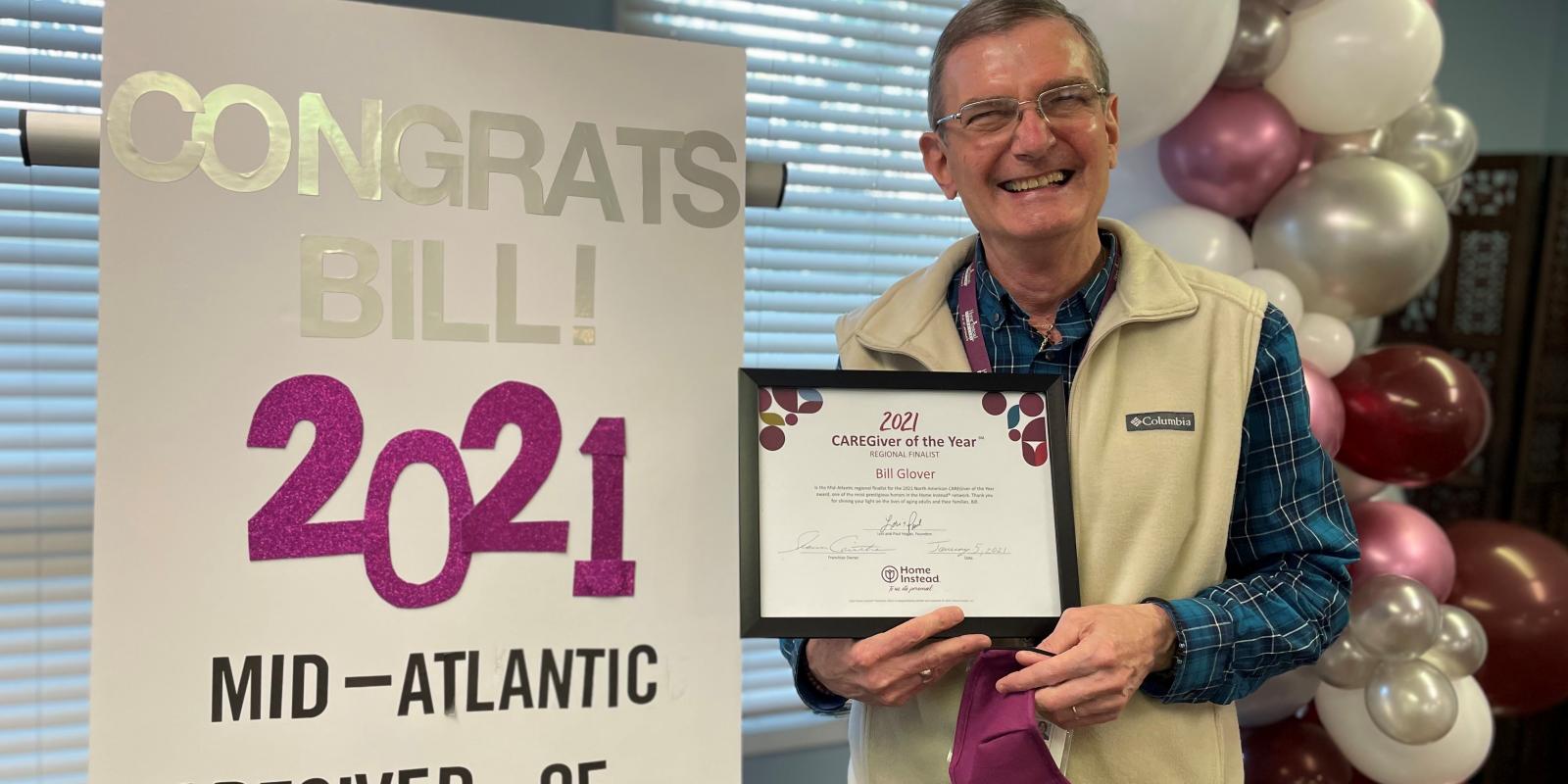In many ways, Bill Glover’s daily routine is not unlike many at his age.
Rises before dawn. Drinks a cup or two of coffee. Scans the local news headlines for something engaging to read with a healthy dose of milk and cereal.
The fact that the 67-year-old Home Instead CAREGiver still works full-time, or even at all, isn’t really an eye-opener in this day and age, either. But what sets him apart—what makes him a workforce anomaly—is his unwillingness to stop.
His unwillingness to embrace the typical retirement norm.
“If you stay healthy, you might as well stay busy,” he says. “And a lot of what I do is focused on my clients who need me.”
Mr. Bill, as he’s been called throughout his professional career, often works 10- to 12-hour days for clients who have specialized needs due to Alzheimer’s and other dementias. And as the demand has increased for the caregiving industry over the past year, he has filled more shifts than ever before.
But the added work hasn’t slowed Glover or driven him to the edge of no return. In fact, his response to the pandemic surge is a large part of why he was named 2021 Home Instead CAREGiver of the Year—an award he says is hopefully a reflection of a person who is leaving a lasting impact on others.
“When I’m gone, I want people to remember a kind man who tried to do good,” Glover says. “Someone who showed love to those he interacted with.”
Driven by a Reason
Glover’s passion for caregiving likely stems from his altruistic approach to helping those who need it most. In 2014 he and his wife left their careers in Ohio—he was a mental health counselor, and she was a nurse—to move to Charleston, SC, and open a mission-based agency to help lower income older adults with care services.
Unfortunately, that plan never materialized, as Glover’s wife passed away from cancer less than a year after the move. Despite the tragedy, he remained committed to his promise.
Now in his seventh year as a caregiver in South Carolina, Glover admits the decision to stay following his wife’s death—both in the state and at Home Instead—was the best one he could have ever made due to the deep-seated connections he’s made personally and professionally.
“When I get connected with a client, I’ll likely be with them until they die,” Glover says. “That’s why I tell them immediately—I ask them, ‘what do you need?’ With that, my job can often keep me very busy.”
My work is my focus and it’s beautiful work.
How busy? Glover was recently persuaded by a friend to become a first-time cat owner in lieu of adopting a dog due to him being home so little throughout the week.
“I still play golf from time to time—and of course I see my 13 grandchildren,” he says. “But my work with my clients is my focus and keeps me busy. And it’s beautiful work.”
Moving Forward
While many older adults in the workforce face ageism and other daily biases, Glover says being an older caregiver has been a huge benefit.
“In many cases I’m a peer,” he says. “In fact, I have a client who is the same age as me. So, I definitely think that is a big advantage for me compared to someone much younger.”
Additionally, Glover says the rewarding work of caregiving naturally keeps you young—giving back way more than he puts into it.
But is there a time to hang up the hat? And how old is too old to work? Glover says he has never given much thought to a number, rather he focuses on his stamina and on how he feels at the end of the day. It wasn’t until he was nominated for the CAREGiver of the Year Award earlier this year that he put a specific age in his crosshairs.
“One of the other finalists who was just as deserving was a woman who is 82,” he says. “God willing, I feel like if I can make it to there—it will be a good age to finally retire.”
Sean Boone is a writer for Home Instead in Omaha, Nebraska.













